- Home
- J. T. Edson
Ole Devil at San Jacinto (Old Devil Hardin Western Book 4) Page 16
Ole Devil at San Jacinto (Old Devil Hardin Western Book 4) Read online
Page 16
‘You’re probably right about them being more likely to be convinced by the posters and letters after the way they fell into their hands,’ Ole Devil conceded bitterly, when the little Oriental had finished speaking. Studying the inscrutable mask of the other’s face, he went on, ‘Did Paul tell you what he intended to do?’
‘No,’ Tommy replied.
‘When did you guess?’ the Texian challenged.
‘Watching him last night, I thought he might be considering something of the sort,’ Tommy admitted, with none of the mock deferential manner he adopted in more relaxed moments or when he felt there was need to relieve his companions’ tensions. ‘Twice before I left my home, I saw Samurai who were dishonored and under the obligation to commit seppuku. xlix Each time, he looked and behaved as Dimmock-san was doing.’
‘Paul wasn’t dishonored,’ Ole Devil protested. ‘It was just the opposite, in fact.’
‘We knew that,’ Tommy replied, ‘but he believed he was.’
‘Then why didn’t you say something to me instead of letting him go through with it?’ Ole Devil demanded savagely, as close as he had ever come to being furious with his loyal little companion.
‘How a man chooses to live, or to die, is his own right, Devil-san,’ Tommy answered with quiet dignity and gentleness. ‘It is not for others, even his friends to interfere. Dimmock-san believed that for the rest of his life, even though he had been on this mission, he would live under a dark cloud because of his flight from Goliad. Always there would be those who sought to remind him—and his parents too—that he was still alive when many of his comrades-in-arms were killed. Sooner or later, it would come that he had to kill somebody, or be killed himself. So he thought it was preferable to die now, usefully and with honor. If I had doubted him, I would have spoken.’
‘I know you would, amigo,’ Ole Devil admitted, nodding his approval. Then he gave a sigh and went on, ‘He died usefully and with honor, all right.’ His voice dropped to little more than a whisper, yet throbbed with emotion, as he concluded, ‘You crazy, gallant fool, Paul. By the Good Lord, I’ll do everything I can to make sure that you haven’t died in vain.’
Lieutenant Paul Dimmock could have asked for no better assurance, nor epitaph!
~*~
Colonel Juan Almonte was waiting with what little patience he could muster for the man he had sent after the dead gringo’s horse to return. A glance at the trail had informed him that Ramon Caro had quit the box of the leading baggage wagon and was joining their superior. He could trust that dirty little rat of a letter-scribbler to try and put him in a bad light over the shooting, and he wanted to refute such a claim as quickly as possible.
Watching the pursuers ascending the slope, the colonel scowled as he noticed that they were not attempting to duplicate the little ‘Indian’s’ speed. Without sympathizing, as he was not personally endangered, he knew why they were holding back. Deciding that bellowing for them to hurry would do more harm than good, by drawing attention to their reluctance to carry out a duty of such importance, he walked over to inspect the gringo’s body. He drew no conclusions, other than that Dimmock was a Texian and had been party to a plot to assassinate el Presidente which had failed at each attempt. The arrival of the Dragoon with the horse saved him from the need to conduct a closer examination.
‘Search him,’ Almonte barked, taking the animal’s reins. ‘Bring any papers he has to me.’
On the point of mounting the horse, the colonel noticed that the right side saddlebag was open and something white showed from within. Failing to notice that the bags were not secured to the rig in the usual way, more out of curiosity than for any other reason, he lifted the flap and pulled forth the sheaf of papers. One glance drove all thoughts of anything else from his head. The top sheet’s message was not written in his native tongue, but he could both speak and read English with considerable fluency.
‘Madre de dios!’ Almonte croaked as he read the printed words, then he looked at the second sheet.
‘What is it, senor!’ asked the Dragoon who was kneeling by the corpse, gazing at his superior in alarm as the discovery of the paper’s inscription elicited an even more violent and profane ejaculation.
‘Mind your own damned business!’ Almonte thundered, and the man cowered before his obvious rage. ‘Has that carrion any papers on it?’
‘I—I haven’t found any yet, patron,’ the Dragoon replied.
‘Then keep looking until you do,’ the colonel ordered, thrusting back all but the top two sheets of paper and swinging astride the horse. ‘If there are any, bring them straight to me. Don’t read them—’
‘I—I can’t read, senor,’ the alarmed soldier confessed.
‘So much the better—for you,’ Almonte said grimly. ‘Make sure that nobody else sees them—nobody at all, understand?’
‘Si, senor,’ assented the Dragoon, returning to his task and wondering what had been on the papers to cause his superior such consternation.
Deciding that it was none of his business and he might even find it ill-advised to pry, the Dragoon appropriated Dimmock’s knife as his loot. Promising himself that he would also try to lay claim to at least one of the gringo’s pistols, he went on with what proved to be a profitless task. The Texian had no documents on his person, nor anything else which could have identified him.
Riding towards where Santa Anna had dismounted, Almonte noted without surprise or pleasure that—as was only to be expected—the rest of the staff were assembling. Galloping from where he had been leading the main body of the column, General Vincente Filisola almost flung himself from his saddle in a manner vastly different to his normally stodgy movements. Colonel Ricardo Dromundo had quit el Presidente’s carriage, in which he had been riding, and was already on the scene. All the rest of the previous night’s dinner guests, equally curious, were also there or coming fast so as to find out what had happened.
‘We’ve got the gringo who shot at you, Your Excellency,’ the colonel reported unnecessarily, conscious of the way the others were scrutinizing him, as he swung to the ground and kept hold of the horse’s reins. ‘My men are after the “Indian”.’
‘I hope they have enough sense to take him alive,’ Caro put in. ‘His Excellency wants prisoners to question, not corpses.’
‘There’s something I must show you, Your Excellency,’ Almonte continued, paying no attention to the comment beyond scowling at its maker. ‘But it should be for your eyes only.’
‘What is it?’ Santa Anna demanded impatiently, glancing at the papers in the colonel’s hands and impressed, in spite of the annoyance aroused by Caro’s reminder, by his air of urgency.
‘The less who know of these the better, Your Excellency,’ Almonte warned, sharing all the staffs knowledge of how el Presidente expected the honorific to be used every time he was addressed. Making a small gesture with the documents, but preventing their contents from being read, he hinted, ‘Shall I send my men away?’
‘Tell them to go and wait by my carriage,’ Santa Anna instructed, his curiosity making him more amenable than he would otherwise have been.
While Almonte could dismiss the men under his command to a safe distance, he had no such authority over his fellow members of the staff. Nor, being bitter rivals and none trusting any of the others, were they willing to be excluded from a discovery which was obviously of considerable importance. So Filisola and the rest gathered closer as the Dragoons retired. Wanting to avoid dissension by appearing to make favorites, el Presidente allowed them to remain.
Although the group pretended to dismiss the ‘reward posters’, which Almonte—ever the showman—exhibited first, their attitudes were much as Lieutenant Carlos Gataneda y Abamillo of the Zacatecas Lancers had been when Ole Devil Hardin had allowed him to read one. What was more, being closer to the source, they had better cause to duplicate the young officers summation of what might happen if such a proposal was presented to the members of the column. All of them realized, alt
hough none would have been foolish enough to admit it openly, that Santa Anna was far from being the popular and well-loved leader to which he laid claim. There were enlisted men, officers even, to whom the chance of gaining such a large reward might have considerable appeal.
‘So they offer to pay a bounty for me,’ Santa Anna sniffed, but he too was displaying a not too well concealed apprehension. He waved a hand towards the poster which the colonel had exhibited. ‘Even if they had posted those things, nobody would have taken the offer seriously.’
‘Except that, as Your Excellency knows, somebody already has,’ Almonte pointed out, not averse to making capital from his superior’s dilemma. ‘Twice!’
‘Who?’ el Presidente demanded, surveying the members of his staff with considerable and, under the circumstances, unjustified, suspicion.
‘The two men who have already tried to kill you,’ the colonel explained, ignoring his colleagues antagonistic glares although delighted to have scored such a point against them.
‘The two—!’ Caro snorted derisively, falling even deeper into the trap. ‘One was a Texian and the other an “Indian”. They had—’
‘Had been sent by the “land thieves” so-called Government to deliver the posters to our soldiers,’ Almonte finished, when the secretary’s words trailed away due to a realization that they might be injudicious. ‘Only that might not have been all they were told to do. They might have had another purpose, too.’
‘And what might that have been, Juan?’ Santa Anna inquired, almost mildly for him.
‘To assassinate Your Excellency themselves,’ Almonte explained, noticing the use of his Christian name with satisfaction. ‘If they had succeeded, the reward would be given to them. Even if they were killed trying, their leaders were confident that the posters would be found and distributed amongst our men.’
‘That’s true,’ Filisola conceded, before he could stop himself.
‘They wouldn’t do such a thing!’ Caro protested, as the Colonel had hoped he would.
‘Why not, if they were authorized to do it and indemnified against the consequences?’ Almonte challenged, grinning savagely at the secretary before making his face respectful and offering his superior—he counted only el Presidente in that category—the other sheet of paper. ‘As Your Excellency will see from this.’
Accepting the document, Santa Anna stared at it for several seconds. His eyes went along the printed lines and his lips worked soundlessly as he mouthed the more lengthy and difficult words. Although he spoke English passably, he was less familiar with the language in its written, or even printed, form. For all that, his breathing turned to deep, almost snorting, grunts and his florid cheeks became suffused with the blood as he realized what the message implied.
From what el Presidente was able to deduce, he was reading an authorization for the bearer of the document to kill him by, to quote: whatever means or methods are most convenient, the more painful and lingering the better, as befitting a tyrant and a cold blooded murderer whose death will benefit all mankind, including the down-trodden and ill-used Mexican soldiers he is wantonly sending to their death.
There followed a far more accurate estimate of the casualties suffered by his Army during the siege at the Alamo Mission than he had allowed to be published in Mexico. l It was printed on the official stationery of the so-called ‘Republic of Texas’—copies of which he had already received from his spies—and, apparently, signed by ‘President’ David G. Burnet, who was reported to have supplanted the former ‘Governor’, Henry Smith.
‘What is it, may one ask, Your Excellency?’ Caro said, puzzled by the expression of malevolence and alarm which had come to his employer’s face.
‘Take a look at this!’ Santa Anna commanded, so overcome by wrath and concern that he passed the document to his secretary without a moment’s hesitation. ‘Those “land thief” swine are trying to have me assassinated!’
‘It is as I said, Your Excellency,’ Almonte commented, hiding under an aura of commiseration, his satisfaction at having had his judgment of the situation’s gravity confirmed. ‘They know that with you dead, we are without a leader—’
‘What does it say?’ Filisola demanded of Caro, before the colonel’s platitude could be completed.
‘However, there’s no proof that it’s genuine,’ the secretary concluded, having translated the contents of the document for the benefit of the other members of the staff. He refused to admit that he did not doubt its authenticity because of his greatest rival’s contribution to its delivery. ‘I’ve never seen Burnet’s signa—’
The ploy failed miserably!
‘Genuine?’ Santa Anna bellowed, before Almonte in particular could express a refutation of the secretary’s statement. He knew that, while he would not have been so indiscreet as to put them into writing, the orders and the indemnification of their bearer against any legal consequences were such as he would have given. ‘Of course it’s genuine!’ He glared around furiously, continuing, ‘Do you think any of that foreign scum would be willing to let himself be killed just to convince me that a forgery is genuine?’
‘Only a man who is devoted to you would make such a sacrifice, Your Excellency,’ Almonte declared and, seeing an opportunity to make yet another display of their loyalty, li the rest of the staff muttered sycophantic concurrence. ‘So that damnable document must be genuine.’
‘It’s genuine all right!’ Santa Anna gritted.
‘What do you intend to do about it, Your Excellency?’ Filisola inquired respectfully, being aware that el Presidente invariably dictated every aspect of policy personally and without consulting anybody else.
‘Do?’ Santa Anna almost shrieked, crushing the paper as if wishing to choke the hateful words from it. ‘Do? Those swine want me killed, do they? Well they’re going to have a chance to earn their blood money themselves. We’re marching to this “temporary Capital” of theirs as fast as we can move.’
‘To Harrisburg?’ Filisola asked, remembering from the reports which had been received that the Republic of Texas’s Army were travelling far to the northeast of that town. ‘But what of Houston and his men, Your Excellency?’
‘Them?’ el Presidente snarled, intolerant as always of any question being put regarding his decisions. ‘What are they? A disorganized and cowardly rabble in full flight from us and unworthy of our attention. No, gentlemen, it is the head of this treacherous and perfidious snake we must remove. We are marching to Harrisburg with all speed.’
Chapter Fifteen – Hot Damn, We’ll Oblige You!
‘Santa Anna’s taken the bait all right, sir,’ Ole Devil Hardin reported. ‘He’s marching for Harrisburg with such haste that, with the exception of a single six-pounder, he’s left all his artillery behind with the baggage train and he’s driving his men so hard that they’re dropping out by the dozen. They’d just arrived at Thompson’s Ferry and were starting to cross the river when we were relieved by Colonel Smith. But, for all his losses along the way, he still has us outnumbered by at least three to one.’
The time was just before eleven o’clock on the morning of April 13.
In spite of his obvious fatigue, the young Texian was standing almost as rigidly while at ease as he had been at attention before receiving Major General Samuel Houston’s permission to relax. He had refused the offer of a chair, knowing that he was so tired from the exertion of the past few days if he sat down he might fall asleep before he had informed his superior officer of what had happened.
Having kept Presidente Antonio Lopez de Santa Anna’s column under observation and making sure of the direction in which it was marching, until the meeting with ‘Deaf’ Smith on the banks of the Brazos River had relieved him of the necessity, Ole Devil was able to announce that his mission was showing every sign of having been successful. Goaded by what he had regarded as two murderous attempts on his life—once with a weapon calculated to doom him to a lingering death—and reading the contents of the documents which Lie
utenant Paul Dimmock’s act of self-sacrifice had put into his possession, the Mexican dictator was behaving as Houston had hoped he would.
Contrary to el Presidente’s supposition, his assailants had never intended to kill or even wound him.
To have done either would not have produced the results General Houston desired!
There were generals far more competent and active than Vincente Filisola in Santa Anna’s column and whichever of them had assumed command after Santa Anna’s death, he would almost certainly have followed the tactically sound course of continuing to pursue the Republic of Texas’s Army. Destroying or scattering it would achieve far more useful results than killing the members of the ‘foreign land thieves’ Government.
Only Santa Anna himself would have such a deep personal involvement that he would wish, to the exclusion of everything else, to wreak vengeance upon the men he believed to be responsible for the two attempts to murder him. By doing so, he was playing into General Houston’s hands. Not only was the latter being granted a desperately needed respite, but the wild dash to Harrisburg was weakening the already dispirited force under el Presidente’s command.
The respite was a very important consideration for the commanding general of the Republic of Texas’s Army under the conditions which were currently prevailing.
For all the outcries of outrage which had arisen over the fate of the Alamo Mission’s defenders, there had been no significant increase in the numbers of their fellow Texians to volunteer for service with the Army. In fact, as the reports of the ‘Runaway Scrape’ lii and the successes of General José Urrea’s Tamaulipa Brigade at San Patricio and Goliad began to circulate, many of those who had already enlisted deserted with the intention of protecting and removing their families beyond the enemies’ reach.

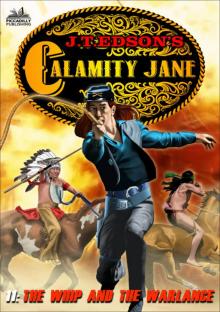 Calamity Jane 11
Calamity Jane 11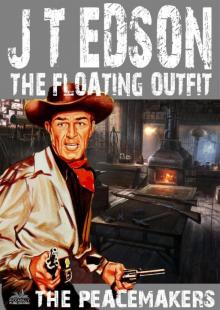 The Floating Outift 33
The Floating Outift 33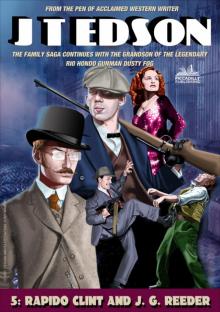 Cap Fog 5
Cap Fog 5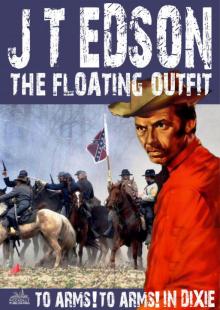 The Floating Outfit 34
The Floating Outfit 34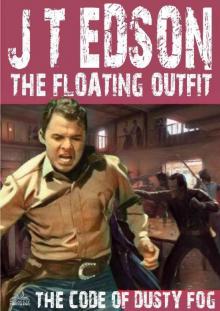 The Code of Dusty Fog
The Code of Dusty Fog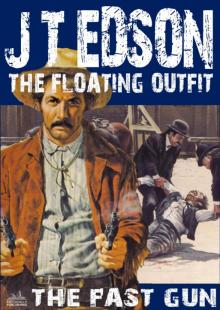 The Floating Outfit 21
The Floating Outfit 21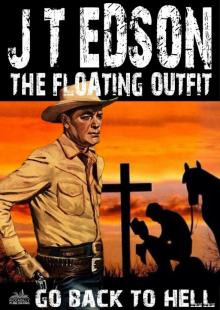 The Floating Outift 36
The Floating Outift 36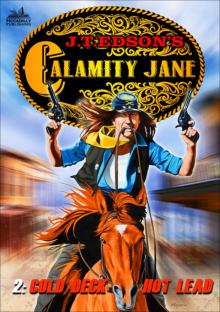 Calamity Jane 2
Calamity Jane 2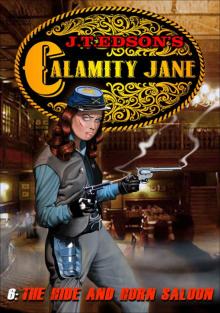 Calamity Jane 6: The Hide and Horn Saloon (A Calamity Jane Western)
Calamity Jane 6: The Hide and Horn Saloon (A Calamity Jane Western)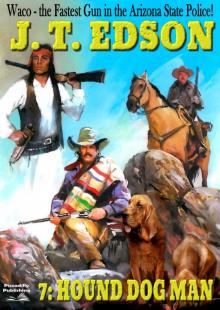 Waco 7
Waco 7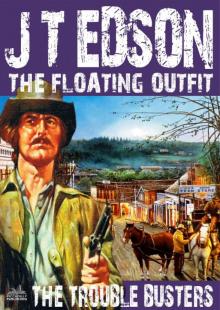 The Floating Outfit 25
The Floating Outfit 25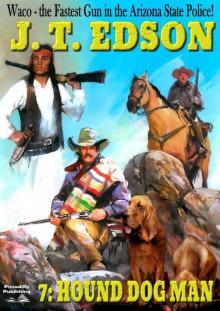 Waco 7: Hound Dog Man (A Waco Western)
Waco 7: Hound Dog Man (A Waco Western)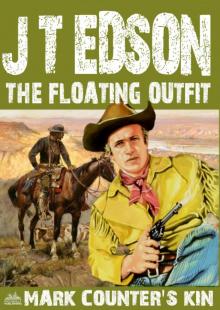 The Floating Outfit 47
The Floating Outfit 47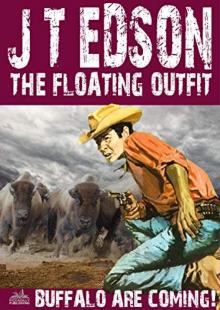 The Floating Outfit 42: Buffalo Are Coming!
The Floating Outfit 42: Buffalo Are Coming!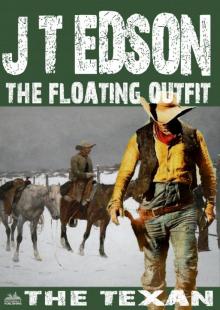 The Floating Outfit 46
The Floating Outfit 46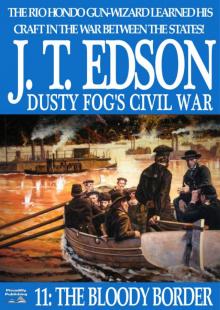 Dusty Fog's Civil War 11
Dusty Fog's Civil War 11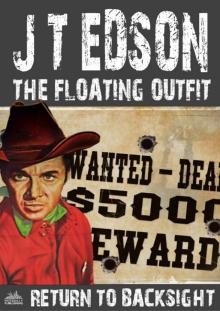 The Floating Outfit 61
The Floating Outfit 61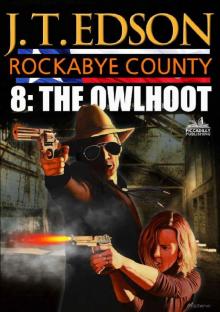 The Owlhoot
The Owlhoot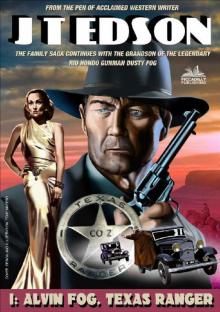 Alvin Fog, Texas Ranger
Alvin Fog, Texas Ranger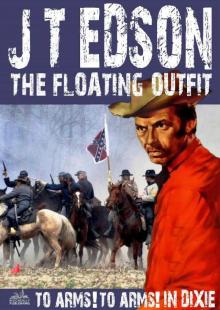 The Floating Outfit 34: To Arms! To Arms! In Dixie! (A Floating Outfit Western)
The Floating Outfit 34: To Arms! To Arms! In Dixie! (A Floating Outfit Western)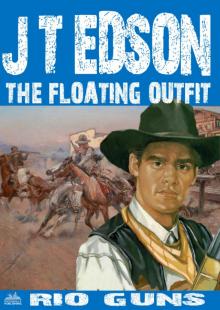 The Floating Outfit 44
The Floating Outfit 44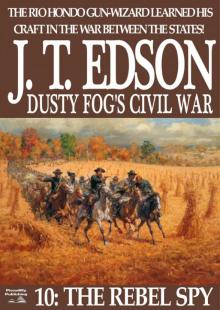 Dusty Fog's Civil War 10
Dusty Fog's Civil War 10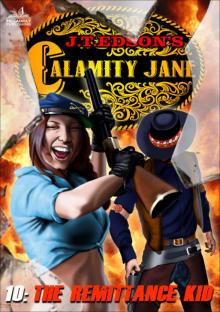 Calamity Jane 10
Calamity Jane 10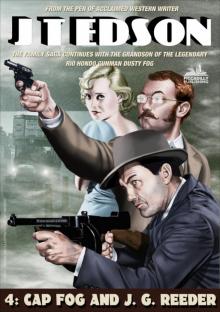 Cap Fog 4
Cap Fog 4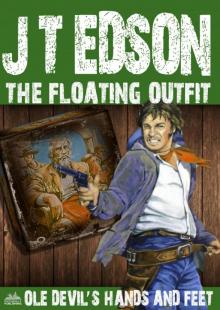 The Floating Outfit 51
The Floating Outfit 51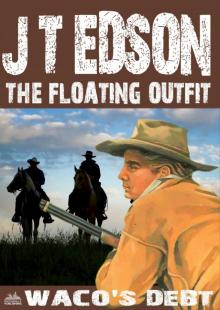 The Floating Outfit 50
The Floating Outfit 50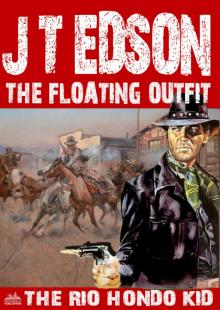 The Floating Outfit 49
The Floating Outfit 49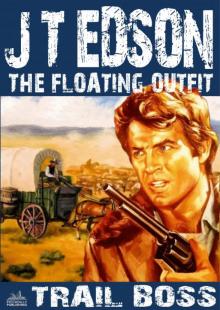 The Floating Outfit 10
The Floating Outfit 10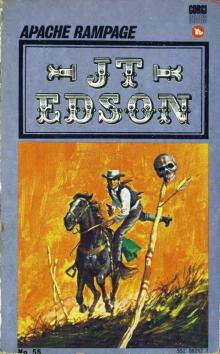 Apache Rampage
Apache Rampage The Floating Outfit 15
The Floating Outfit 15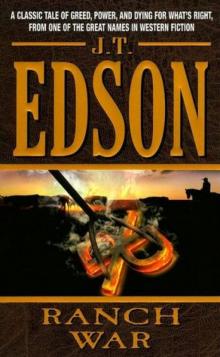 Ranch War
Ranch War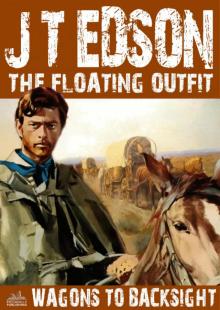 The Floating Outfit 11
The Floating Outfit 11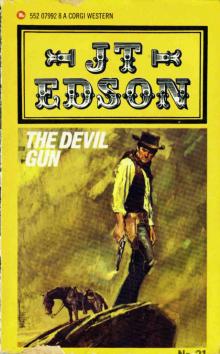 The Devil Gun
The Devil Gun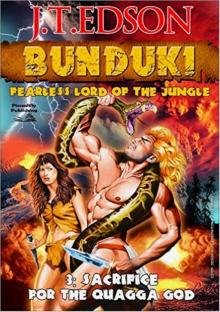 Sacrifice for the Quagga God (A Bunduki Jungle Adventure Book 3)
Sacrifice for the Quagga God (A Bunduki Jungle Adventure Book 3)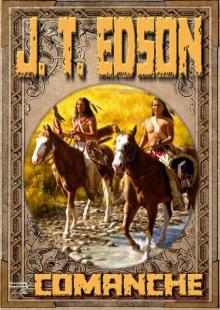 Comanche (A J.T. Edson Western Book 1)
Comanche (A J.T. Edson Western Book 1)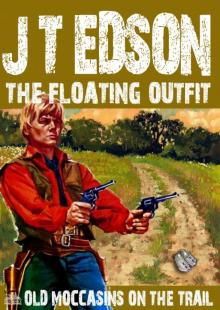 The Floating Outfit 48
The Floating Outfit 48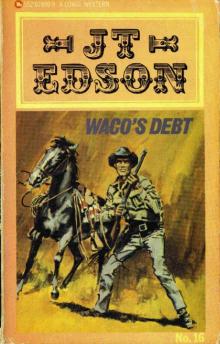 Wacos Debt
Wacos Debt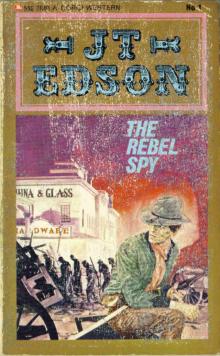 The Rebel Spy
The Rebel Spy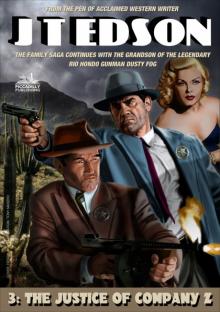 Cap Fog 3
Cap Fog 3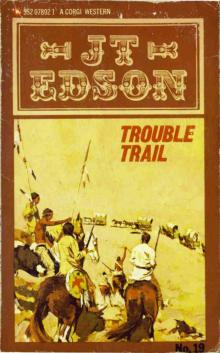 Trouble Trail
Trouble Trail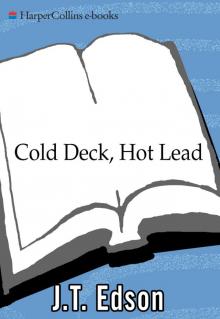 Cold Deck, Hot Lead
Cold Deck, Hot Lead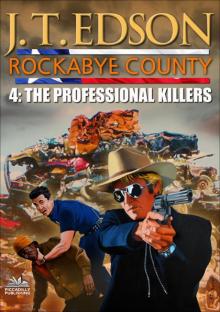 Rockabye County 4
Rockabye County 4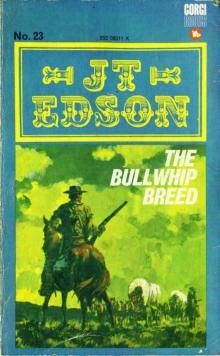 The Bullwhip Breed
The Bullwhip Breed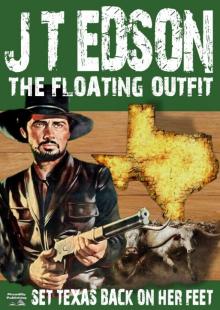 Set Texas Back On Her Feet (A Floating Outfit Western Book 6)
Set Texas Back On Her Feet (A Floating Outfit Western Book 6)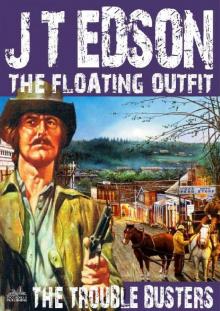 The Floating Outfit 25: The Trouble Busters (A Floating Outfit Western)
The Floating Outfit 25: The Trouble Busters (A Floating Outfit Western)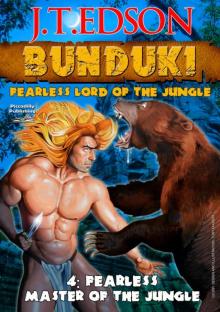 Fearless Master of the Jungle (A Bunduki Jungle Adventure
Fearless Master of the Jungle (A Bunduki Jungle Adventure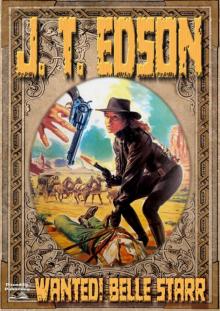 Wanted! Belle Starr!
Wanted! Belle Starr!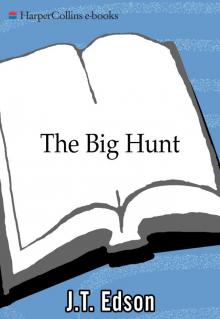 The Big Hunt
The Big Hunt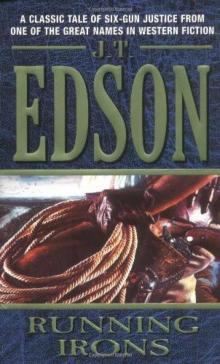 Running Irons
Running Irons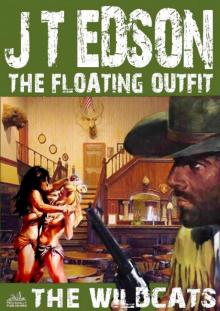 The Floating Outfit 19
The Floating Outfit 19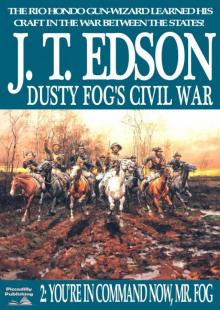 You're in Command Now, Mr Fog
You're in Command Now, Mr Fog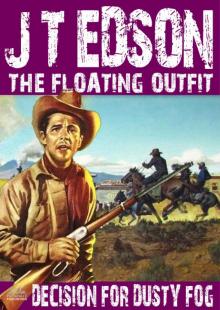 The Floating Outfit 27
The Floating Outfit 27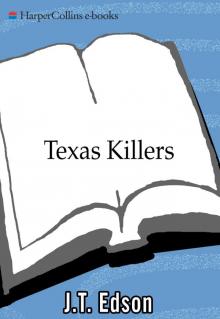 Texas Killers
Texas Killers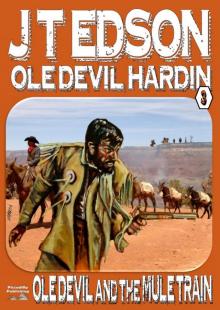 Ole Devil and the Mule Train (An Ole Devil Western Book 3)
Ole Devil and the Mule Train (An Ole Devil Western Book 3)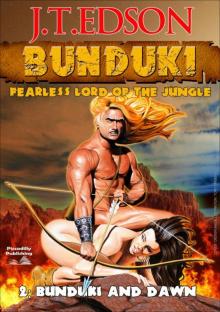 Bunduki and Dawn (A Bunduki Jungle Adventure Book 2)
Bunduki and Dawn (A Bunduki Jungle Adventure Book 2)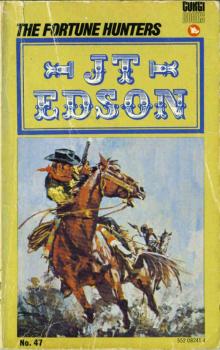 The Fortune Hunters
The Fortune Hunters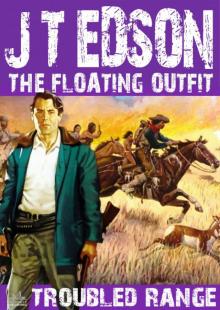 The Floating Outfit 12
The Floating Outfit 12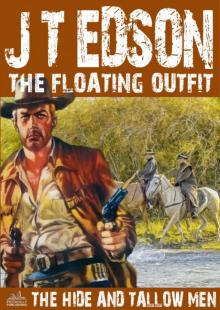 The Hide and Tallow Men (A Floating Outfit Western. Book 7)
The Hide and Tallow Men (A Floating Outfit Western. Book 7)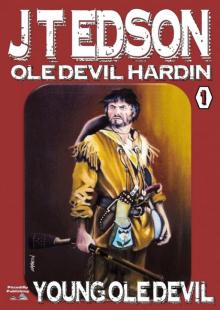 Young Ole Devil
Young Ole Devil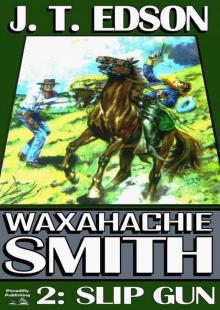 Slip Gun
Slip Gun The Drifter
The Drifter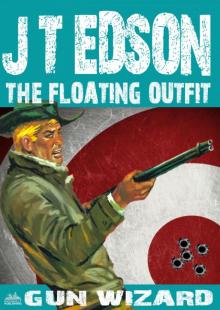 The Floating Outfit 45
The Floating Outfit 45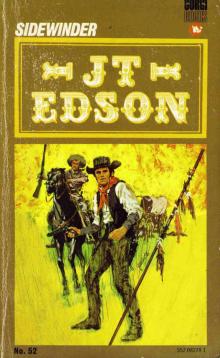 Sidewinder
Sidewinder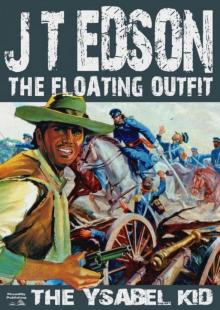 The Ysabel Kid
The Ysabel Kid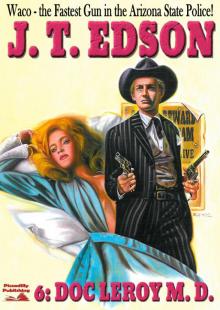 Waco 6
Waco 6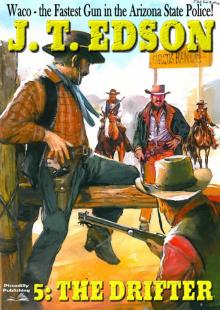 Waco 5
Waco 5 Point of Contact
Point of Contact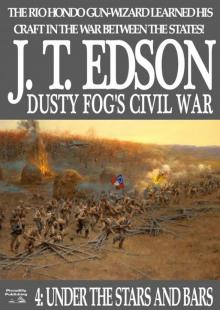 Under the Stars and Bars (A Dusty Fog Civil War Western Book 4)
Under the Stars and Bars (A Dusty Fog Civil War Western Book 4)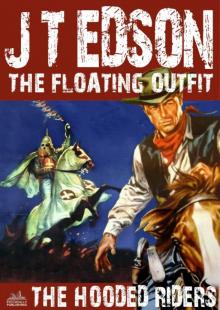 The Floating Outfit 9
The Floating Outfit 9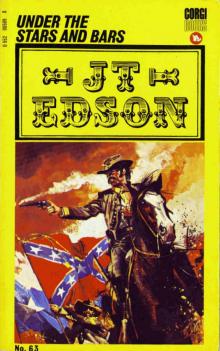 Under the Stars and Bars
Under the Stars and Bars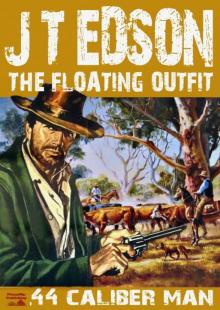 .44 Caliber Man
.44 Caliber Man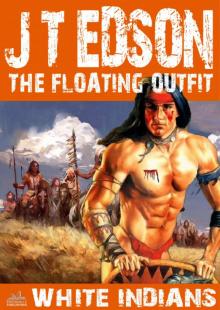 The Floating Outfit 17
The Floating Outfit 17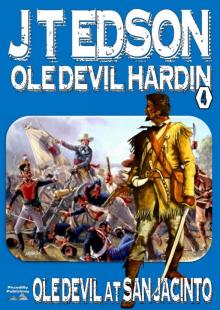 Ole Devil at San Jacinto (Old Devil Hardin Western Book 4)
Ole Devil at San Jacinto (Old Devil Hardin Western Book 4)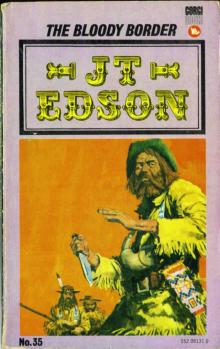 The Bloody Border
The Bloody Border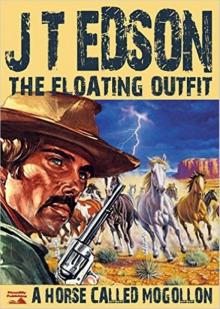 A Horse Called Mogollon (Floating Outfit Book 3)
A Horse Called Mogollon (Floating Outfit Book 3)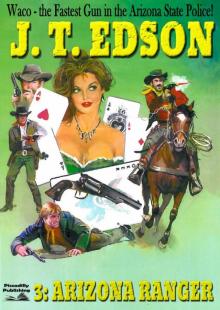 Waco 3
Waco 3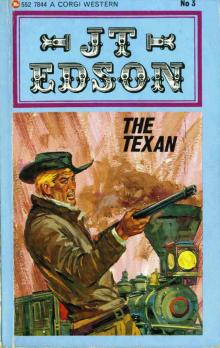 The Texan
The Texan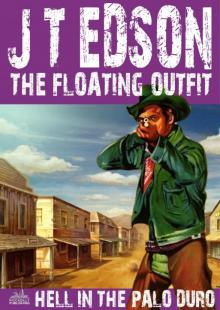 The Floating Outfit 35
The Floating Outfit 35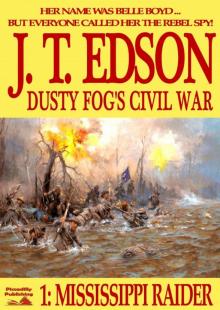 Mississippi Raider
Mississippi Raider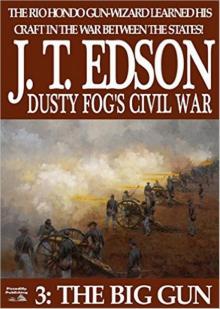 The Big Gun (Dusty Fog's Civil War Book 3)
The Big Gun (Dusty Fog's Civil War Book 3)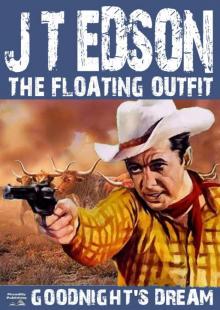 Goodnight's Dream (A Floating Outfit Western Book 4)
Goodnight's Dream (A Floating Outfit Western Book 4) Waco 4
Waco 4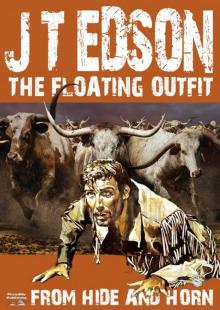 From Hide and Horn (A Floating Outfit Book Number 5)
From Hide and Horn (A Floating Outfit Book Number 5)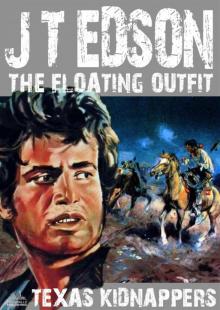 The Floating Outfit 18
The Floating Outfit 18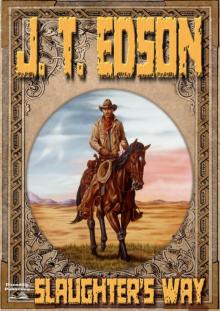 Slaughter's Way (A J.T. Edson Western)
Slaughter's Way (A J.T. Edson Western)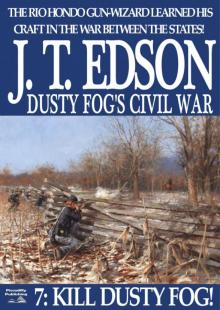 Dusty Fog's Civil War 7
Dusty Fog's Civil War 7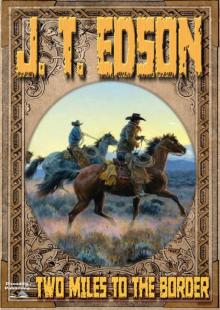 Two Miles to the Border (A J.T. Edson Western)
Two Miles to the Border (A J.T. Edson Western)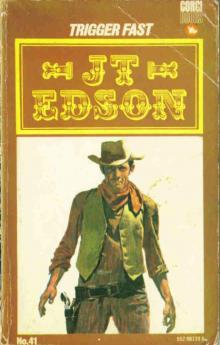 Trigger Fast
Trigger Fast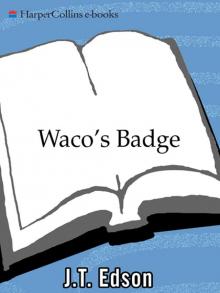 Waco's Badge
Waco's Badge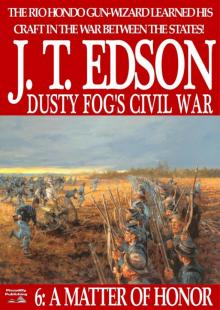 A Matter of Honor (Dusty Fog Civil War Book 6)
A Matter of Honor (Dusty Fog Civil War Book 6)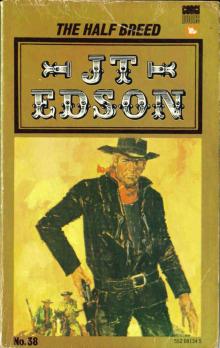 The Half Breed
The Half Breed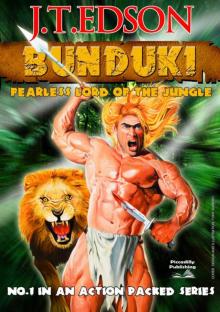 Bunduki (Bunduki Series Book One)
Bunduki (Bunduki Series Book One)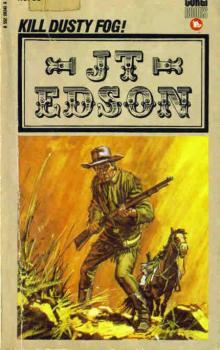 Kill Dusty Fog
Kill Dusty Fog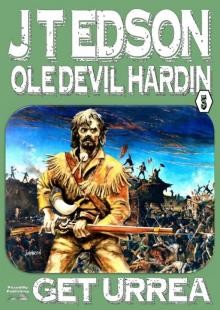 Get Urrea! (An Ole Devil Hardin Western Book 5)
Get Urrea! (An Ole Devil Hardin Western Book 5)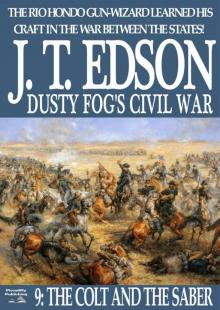 Dusty Fog's Civil War 9
Dusty Fog's Civil War 9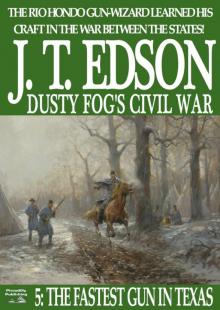 The Fastest Gun in Texas (A Dusty Fog Civil War Book 5)
The Fastest Gun in Texas (A Dusty Fog Civil War Book 5)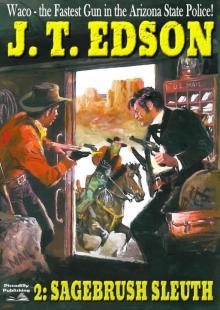 Sagebrush Sleuth (A Waco Western #2)
Sagebrush Sleuth (A Waco Western #2)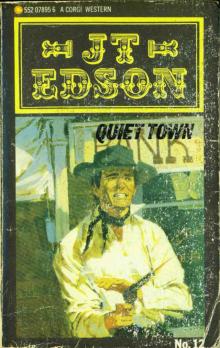 Quiet Town
Quiet Town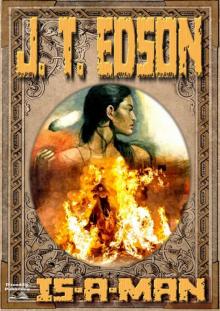 Is-A-Man (A J.T. Edson Standalone Western)
Is-A-Man (A J.T. Edson Standalone Western)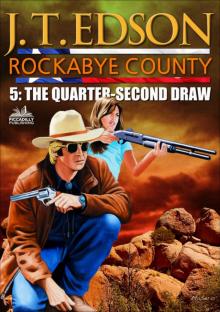 Rockabye County 5
Rockabye County 5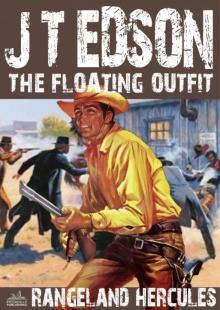 The Floating Outfit 14
The Floating Outfit 14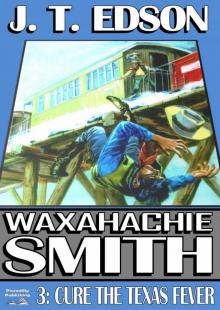 Cure the Texas Fever (A Waxahachie Smith Western--Book 3)
Cure the Texas Fever (A Waxahachie Smith Western--Book 3)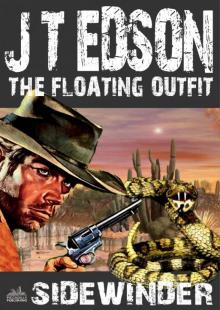 The Floating Outfit 13
The Floating Outfit 13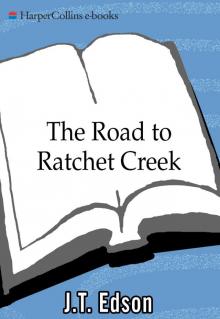 The Road to Ratchet Creek
The Road to Ratchet Creek